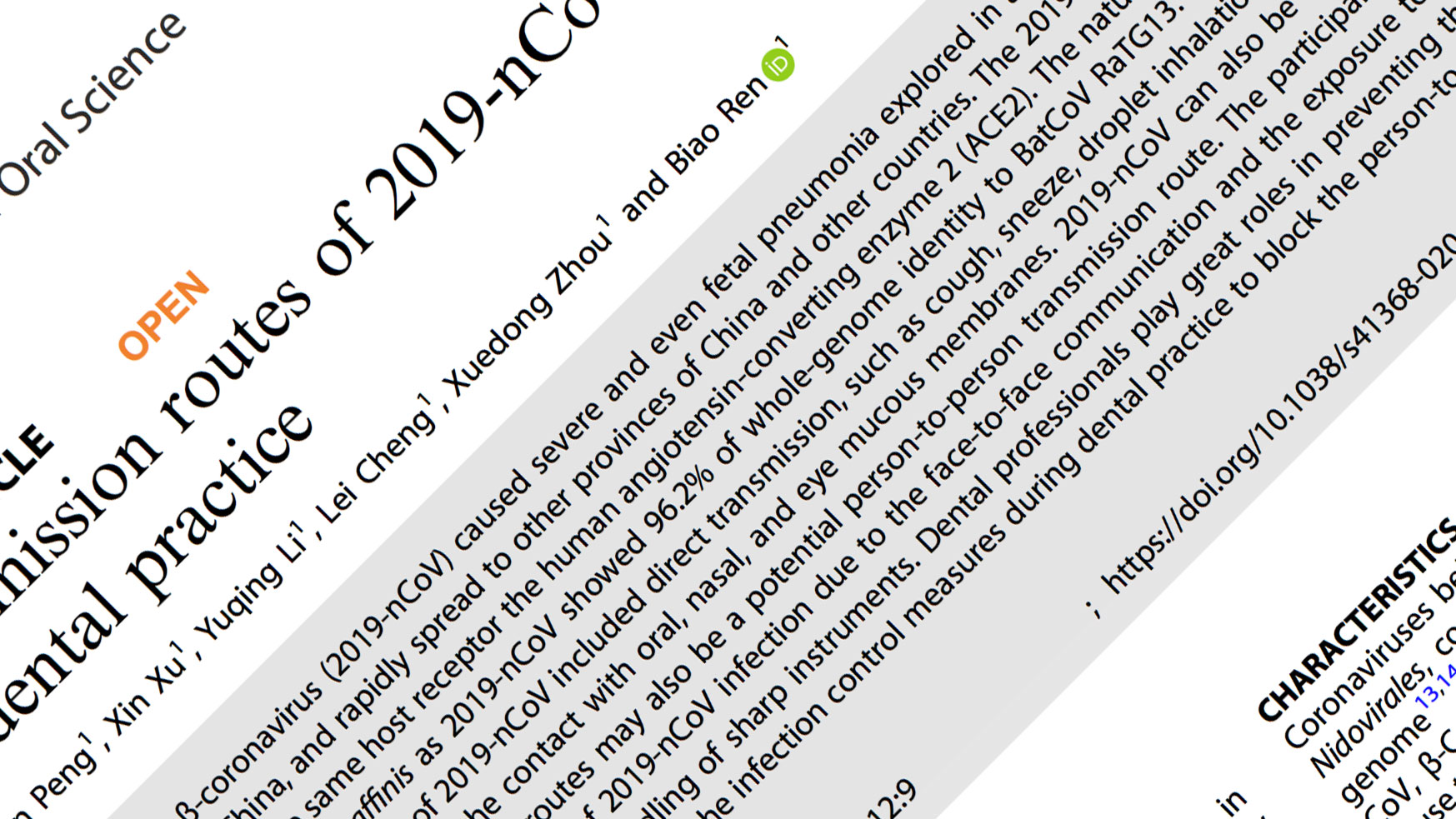(344 words)
In a recent scientific review paper published in the International Journal of Oral Science, several leading Chinese scientists and clinicians highlight the challenges of managing infection risk in dental practice.
The in-depth article discusses the potential transmission routes of the virus and the impact of airborne, contact, and contaminated surfaces spread.
The article’s contributors provide a graphical illustration of transmission routes and a wide-ranging breakdown of infection control procedures.
Topics covered include
- patient evaluation;
- hand hygiene;
- personal protective equipment (PPI);
- use of mouth rinses;
- rubber dam isolation;
- benefits of anti-retraction handpieces;
- disinfection of clinical settings; and
- the management of medical waste.
Excerpt
“INFECTION CONTROLS FOR DENTAL PRACTICE
Dental professionals should be familiar with how 2019-nCoV is spread, how to identify patients with 2019-nCoV infection, and what extra-protective measures should be adopted during the practice, in order to prevent the transmission of 2019-nCoV. Here we recommend the infection control measures that should be followed by dental professionals, particularly considering the fact that aerosols and droplets were considered as the main spread routes of 2019-nCoV. Our recommendations are based on the Guideline for the Diagnosis and Treatment of Novel Coronavirus Pneumonia (the 5th edition) (http://www.nhc.gov.cn/yzygj/s7653p/202002/ 3b09b894ac9b4204a79db5b8912d4440.shtml), the Guideline for the Prevention and Control of Novel Coronavirus Pneumonia in Medical Institutes (the 1st edition) (http://www.nhc.gov.cn/yzygj/s7659/ 202001/b91fdab7c304431eb082d67847d27e14.shtml), and the Guideline for the Use of Medical Protective Equipment in the Prevention and Control of Novel Coronavirus Pneumonia (http://www.nhc.gov.cn/ yzygj/s7659/202001/e71c5de925a64eafbe1ce790debab5c6.shtml) released by the National Health Commission of the People’s Republic of China, and the practice experience in West China Hospital of Stomatology related to the outbreak of 2019-nCoV transmission.”
About the author
Simon Davies is the founder of CleanCert Innovations LTD, a company operating at the forefront of clinical infection control for over 10-years.
His vision is to create safer environments by helping clinical practices manage infection risks without the need to use toxic chemicals.
The active ingredient in CleanCert products is stabilised Hypochlorous acid (HOCl), a potent natural biocide proven effective against a wide range of pathogens.
Further reading
Coronavirus facts explained in a video by Dr Peter Lin
